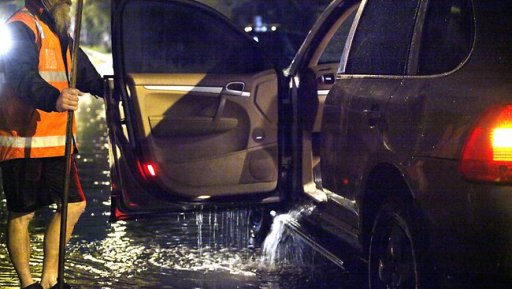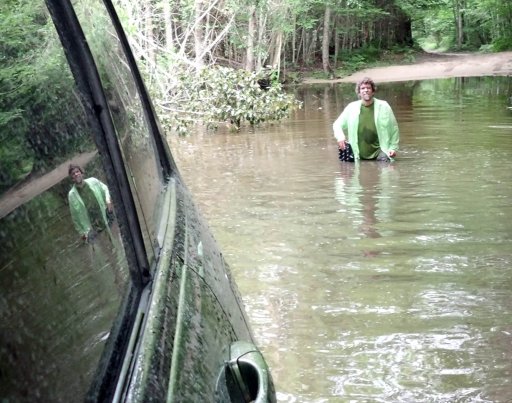
Enthusiast I
During a recent solo overland trip on ORV routes and forest roads in Michigan's upper peninsula, my wife and I had an interesting experience and learned some valuable lessons I'd like to pass along.
- Overland travel is great fun, especially after a heavy rain when there’s lots of water over the trails.
- Appearances can be deceiving. For example, what appears to be 8 inches of clear water with a sandy bottom might actually be 20 inches of water plus a foot or more of muck.
- That is too deep for an unmodified Jeep Grand Cherokee. Even if you have confidence and nice tires.
- There are some experiences in life that simply have no equal. For example, the unique combination of shock, horror, panic and shame felt as one’s lone vehicle settles into a swamp many miles from the nearest road.
- When stuck in deep water, there are several good ways to determine the water level relative to the vehicle. Opening a door is not a good way.
- Mosquitoes can smell panic and they like it very much.
- The 2019 Jeep Grand Cherokee features deep compartments under the seats that are designed to collect any water that might enter the vehicle. Somebody thought that mounting the vehicle’s batteries and electronic controls in those compartments was a good idea. It wasn’t.
- MaxTrax recovery tracks are highly overrated and overpriced, until you need them. For example, when your Grand Cherokee is stuck in a swamp up to the tops of the wheel wells and filling with water.
- It’s a good idea to carry all your recovery gear where it can be accessed quickly, and not buried under all the other crap you’re hauling, because you might need it in a hurry. For example, when your Grand Cherokee is stuck in a swamp up to the tops of the wheel wells and filling with water.
- A hand-operated winch is not nearly as powerful as an electric winch, but it can make you feel powerful if you somehow manage to just barely pull the vehicle into the first teeth of your MaxTrax jammed into the underwater muck in which your tires are buried.
- When a Jeep rises out of deep water, it’s amazing how much water comes running out. It’s even more amazing how much water is retained inside the frame and sloshes like a fish tank every time you stop and start. It will dry, but not soon.
- The compartments in the doors are great for carrying things like books, maps, food and radios. They also hold water really well.
- A Jeep might still be somewhat drivable when every warning light on the dashboard is illuminated. Lots of things won’t work but at least you’ll know that all the warning lights do.
- If you are need of education, the trail will gladly teach you what you need to learn. Your tuition might get expensive.









